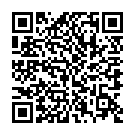|
|
|
| Module code: MST2.EN2 |
|
|
2S (2 hours per week) |
|
2 |
| Semester: 2 |
| Mandatory course: yes |
Language of instruction:
English/German |
Assessment:
Written exam 150 min.
[updated 05.10.2020]
|
MST2.EN2 (P231-0083) Mechatronics and Sensor Technology, Bachelor, ASPO 01.10.2019
, semester 2, mandatory course
MST2.EN2 (P231-0083) Mechatronics and Sensor Technology, Bachelor, ASPO 01.10.2020
, semester 2, mandatory course
|
30 class hours (= 22.5 clock hours) over a 15-week period.
The total student study time is 60 hours (equivalent to 2 ECTS credits).
There are therefore 37.5 hours available for class preparation and follow-up work and exam preparation.
|
Recommended prerequisites (modules):
MST2.EN1 Business English for Mechatronics Engineers
[updated 12.04.2021]
|
Recommended as prerequisite for:
MST2.EN3 Applying for an Engineering Job
MST2.SPR Mechatronics Project in English
[updated 13.04.2021]
|
Module coordinator:
Prof. Dr. Christine Sick |
Lecturer: Prof. Dr. Christine Sick
[updated 01.10.2020]
|
Learning outcomes:
The modules _Business English for Mechatronics Engineers_, _Technical English for Mechatronics Engineers_, _Applying for an Engineering Job_, as well as _Technical Reports and Presentations for Mechatronics Engineers_ in the "Mechatronics Project in English" module should be seen in conjunction with one another. The goal is for the students to develop their English language skills in the professional and technical field from the desired entry level B1 to B2 of the European Framework of Reference for Languages within the course of the respective modules.
After successfully completing this module, students will be able to name and describe the most important materials and their properties in English. They will be able to understand technical instructions in English and to give instructions themselves. In addition, they will be able to name the components of simple mechatronic systems and explain how they work. They will also be familiar with the structure of English presentations. Students will be able to prepare a manuscript in English for a presentation and present it orally.
[updated 05.10.2020]
|
Module content:
_ Describing the professional field of mechatronics and sensor technology
_ Vocabulary on materials and substances (using the example of motor vehicles)
_ Giving and understanding technical instructions
_ Basic tools and machines
_ Texts on sensors and actuators (learning reading strategies)
_ Audios and videos on mechatronic topics (practicing listening comprehension)
_ Describing components and functions of mechatronic systems (e.g., rain sensor, light barriers, etc.)
_ Cause and effect language
_ Passive voice
_ Structure of and useful phrases in English presentations
_ Describing and explaining numbers and trends
_ Creating a presentation manuscript in English
_ Holding a presentation in English
[updated 05.10.2020]
|
Teaching methods/Media:
Learning objectives will be achieved through integrated training of the four basic skills (listening comprehension, reading comprehension, speaking and writing) supported by multimedia, as well as the repetition of basic grammar and vocabulary. Communication training for job-relevant situations will take place within the framework of learner-centered lessons in the multimedia computer language laboratory. Vocabulary work, as well as the consolidation of the content taught will be supported by voluntary self-study phases in the multimedia computer language laboratory.
[updated 05.10.2020]
|
Recommended or required reading:
Multimedia language learning programs, e-learning and mobile learning:
Christine Sick, unter Mitarbeit von Miriam Lange (2011): TechnoPlus English 2.0: Ein multimediales Sprachlernprogramm für Technisches und Business Englisch (Niveau B1-B2+), EUROKEY.
Christine Sick, unter Mitarbeit von Lisa Rauhoff und Miriam Wedig (seit 2016): Online Extensions zu TechnoPlus Englisch, EUROKEY.
Christine Sick (2015): htw saar TechnoPlus Englisch VocabApp (Mobile Learning Angebot insbesondere zum Grundwortschatz, alle Niveaustufen), EUROKEY.
Susanne Ley, Christine Sick: prep course English (m&eLanguageLearningPortal@CAS: e&m-Learning-Angebot zur Unterstützung der Studierenden beim Englischlernen am Campus Alt-Saarbrücken der htw saar)
Video:
J. Comfort, D. Utley: Effective Presentations. OUP
Dictionaries and grammar:
PONS Großwörterbuch für Experten und Universität. PONS.
PONS Lexiface. Professional English (CD-ROM). PONS.
Macmillan English Dictionary for Advanced Learners (mit CD-ROM). Macmillan.
Longman Dictionary of Contemporary English (mit CD-ROM). Longman.
R. Murphy: English Grammar in Use. A self-study reference and practice book for intermediate students. OUP.
Other media:
Target group-specific materials (audio, video, online texts)
[updated 05.10.2020]
|


